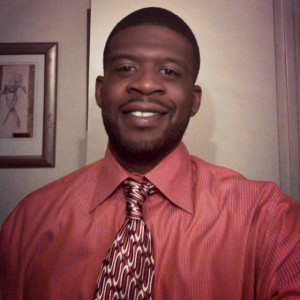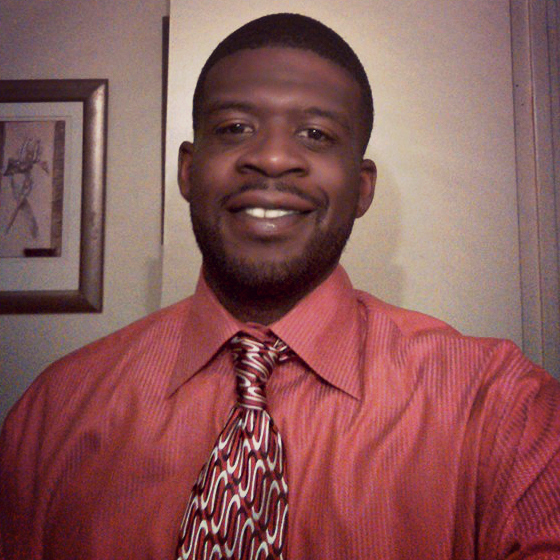From Thug to Advocate
Growing up in inner city Washington D.C. hearing gun shots was an everyday thing. In the early ‘90s D.C. was like a war zone and violence was something that I had grown accustomed to throughout my childhood. My changing point came when I was 14 years old in 1996. My brother was shot in the face with a shot gun and then his attackers stood over top of him with a pistol and shot him several more times. He was involved in an argument that escalated into an attempt on his life.
I was used to shootings but this time the victim was the person I looked up to and wanted so much to be like. My brother was the father figure in my life who taught me everything I knew. I followed him down whatever road he chose to go, and he chose the streets so I followed. He always protected me so I felt guilty about not being there when he was shot. In my mind I thought if I had been there things would have gone differently and he would have been ok.
I remember when I went to the hospital to see my brother after the attack. He was laying in the hospital bed with his eyes sewn shut and he had skin graphs placed on his face to try to cover up the wound. When I first saw him was the only time I cried over him being shot. He couldn’t speak but could write to me and hear what I said. I couldn’t even look at him so I looked at the wall the whole time. I stayed there for about 2 hours and never really looked at him or told him about the emotions I was feeling at that time. I loved my brother to death and I couldn’t even look at him because I wanted to show how strong I was by not letting him hear me cry. I was 14 and felt as if I should be able to handle and deal with anything I encountered. Now I look back and know I was just a kid that was lost, hurt and confused.
After the attack I felt scared and depressed—feelings that I was taught not to show. Being raised in a black community and also being involved in the streets meant that showing emotions was a sign of weakness. Death and violence were a part of our culture and we dealt the best way we could. Because of this way of thinking, I knew that I was always supposed to be strong and show no emotions no matter how bad things were. Looking back I can see that I had always dealt with symptoms of depression but after my brother’s attack things started to really get bad for me.
I felt alone and weak because of the pain I was feeling. I had no one to really talk to about the feelings I was having. I didn’t think anyone would truly understand. I had been smoking marijuana and drinking alcohol since the age of 10 but this pain was too intense too be covered up by those substances. I needed something stronger so I moved on to smoking PCP. Smoking PCP helped me escape the pain and feel strong again. But in reality all I did was cover up the pain I was feeling. Drugs allowed me to portray that everything was alright when actually I was dying in the inside.
As a teenager my only way to cope was by using substances so I never developed any other coping skills. There are many youth going through the same issues today that I encountered 20 years ago. Today teens are using synthetic marijuana which has the same affects as PCP. I walk the streets of D.C. and see young people looking like zombies. I also have seen teens in emergency facilities as a result of smoking K2 which causes a drug-induced psychosis. Even though the murder rate is much lower now than it was in the ‘90s there is still a lot of violence and trauma in my community.
I found a way out of the streets and turned my life around for the better. I went into treatment in April 2014 and have been sober ever since. I have been diagnosed with PTSD, Generalized Anxiety Disorder and Depression which I’m receiving treatment for. I realize that I have dealt with mental health issues my whole life but was too ashamed to get help. I want to change the stigma so that others in my community don’t have to feel that shame ever again. Teens are self-medicating in my community and in communities all around the world. I want to do my part to save our youth who are suffering so much.
A good question to ask is how far have we have really come in fighting mental health stigma in the last 20 years? An even better question is how much change can we make in the next 10 years if we all do our part?
 David Davis is a junior in college, majoring in Psychology. His dream is to become a clinical psychologist. He is doing his part to raise awareness and break down the stigma around mental health as a Certified Peer Specialist and Certified NAMI Peer Mentor in Washington D.C.
David Davis is a junior in college, majoring in Psychology. His dream is to become a clinical psychologist. He is doing his part to raise awareness and break down the stigma around mental health as a Certified Peer Specialist and Certified NAMI Peer Mentor in Washington D.C.
David can be found on Twitter
If you enjoyed this post, please take a few moments to leave a comment, or share with your friends using the share buttons below.








David, thanks so much for sharing.
Skimmed it, want to read it carefully. There’s a lot of uncommon stuff inside you. I’d like to see if we can really bring it out. See you Sat. Mark
Lot to reflect upon, David. Thanks for letting me see another side of you. Mark